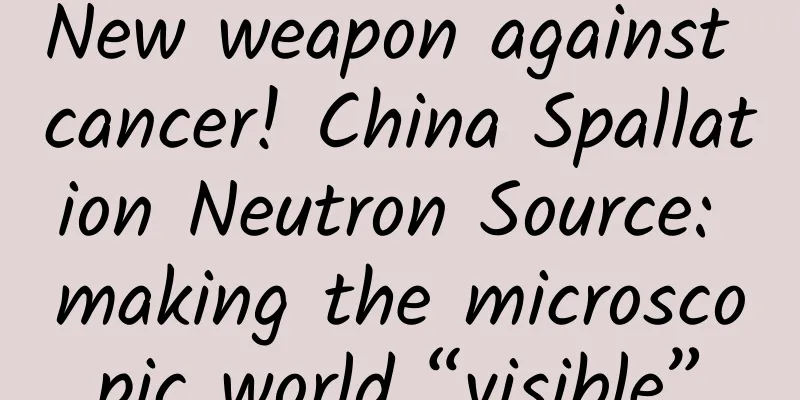A small capsule that can sense your heartbeat at all times!

|
Author: Shi Xiangqi and Li Chuanfu With the rapid development of science and technology, the medical field has also ushered in revolutionary progress. Researcher Li Zhou from the Beijing Institute of Nanoenergy and Nanosystems of the Chinese Academy of Sciences, Associate Professor Liu Zhuo from the School of Medical Science and Engineering of Beihang University, and Director Hua Wei's team from the Arrhythmia Center of Fuwai Hospital published a breakthrough research result in the journal Advanced Materials - zero-bias capsule sensor, which brings new hope for the monitoring and management of chronic heart failure. Overview of zero-bias cardiac monitoring capsule sensor Source: Advanced Materials Heart failure is a global challenge, affecting approximately 45 million people worldwide. It not only brings tremendous physical and psychological pressure to patients, but also imposes a heavy burden on the medical system and the economy. At present, although ultrasound and multi-lead ECG monitoring devices can provide important heart function parameters, they cannot achieve continuous monitoring, and patients need to go to the hospital for regular check-ups, which undoubtedly increases the consumption of medical resources and the inconvenience of patients. To solve this problem, Chinese scientists have developed a zero-bias cardiac monitoring capsule sensor based on the triboelectric effect. This capsule sensor can sense the diastole and contraction of the ventricle, and generate electrical signals through relative friction of the internal structure of the device caused by cardiac activity, directly and in situ reflecting the changes in cardiac mechanical activity, and realizing continuous monitoring and evaluation of cardiac contractility. The core material of the zero-bias capsule sensor uses a nano self-adsorption method to enhance the charge density, significantly improving the mechanical-electrical conversion performance of the triboelectric effect device. The application of this material provides a guarantee for the miniaturization of the device and the coordinated high-performance electrical output. The researchers verified that the sensor met the requirements for in vivo implantation through in vitro biocompatibility experiments and successfully implanted the zero-bias capsule sensor in the right ventricle of a pig model. The experimental results showed that the zero-bias capsule sensor can successfully capture the increase and decrease of cardiac contractility, and even a small displacement can generate sufficient electrical signals to meet the actual needs of in vivo monitoring. The advent of zero-bias capsule sensors can not only monitor changes in cardiac contractility, but also detect abnormal changes in local cardiac contractility caused by arrhythmias, such as ventricular premature beats and ventricular tachycardia. These signals can be wirelessly transmitted to mobile terminals to achieve real-time monitoring and analysis of cardiac status, providing clinicians with a powerful tool to diagnose and intervene in the condition of heart failure patients earlier. As science and technology continue to advance, we can expect that innovative technologies such as zero-bias capsule sensors will bring more hope and a higher quality of life to heart patients. Let us look forward to more breakthroughs in the medical field in the future to protect human health. |
<<: Years of doubt: Are seaweed and laver related?
>>: Another wave is coming! The "black technology" that changes human exploration of space
Recommend
The efficacy and function of Yangjiaoao
Chinese medicinal materials have good effects on ...
The efficacy and function of Pittosporum glossyii root
The root of the traditional Chinese medicine Pitt...
Can I drink mugwort water every day?
Mugwort has great health-care functions. Drinking...
Compared with fuel vehicles, do new energy vehicles have a higher rate of spontaneous combustion in collisions? How to prevent it in hot weather?
Spontaneous combustion of vehicles has always bee...
The efficacy and function of pepper root
The root of peppercorns is a very good medicinal ...
The best vegetables to eat in spring have so many benefits!
“The peaches and plums in the city are worried ab...
Is hybridization the reason why the Qinghai-Tibet Plateau became the "cradle of evolution"?
Qinghai-Tibet Plateau Have a complex Geological t...
What are the effects of white Poria powder
Many people may have never heard of white Poria p...
These "forest giants" wearing "golden armor" are actually the "living map" of the Jiangnan forests
In early February, a friend sent me a photo of a ...
Truck fires have occurred in many places. Be sure to pay attention to these signs before a truck catches fire!
Recently, as the temperature has been rising, a n...
What are the taboos of licorice?
Everything has two sides. We cannot only see the ...
Curious: Why do people like to work in coffee shops?
In life, there are always many people who carry n...
Life-saving medicine or harmful poison, what exactly is the red yeast rice that has become a hot topic?
Red yeast rice, a fermented product with a long h...
The efficacy and function of tea oil
There are many kinds of common Chinese medicinal ...
Stockings were originally designed for men! Why are they so tempting? Here comes the serious science popularization
Expert of this article: Zhao Wei, Doctor of Medic...









